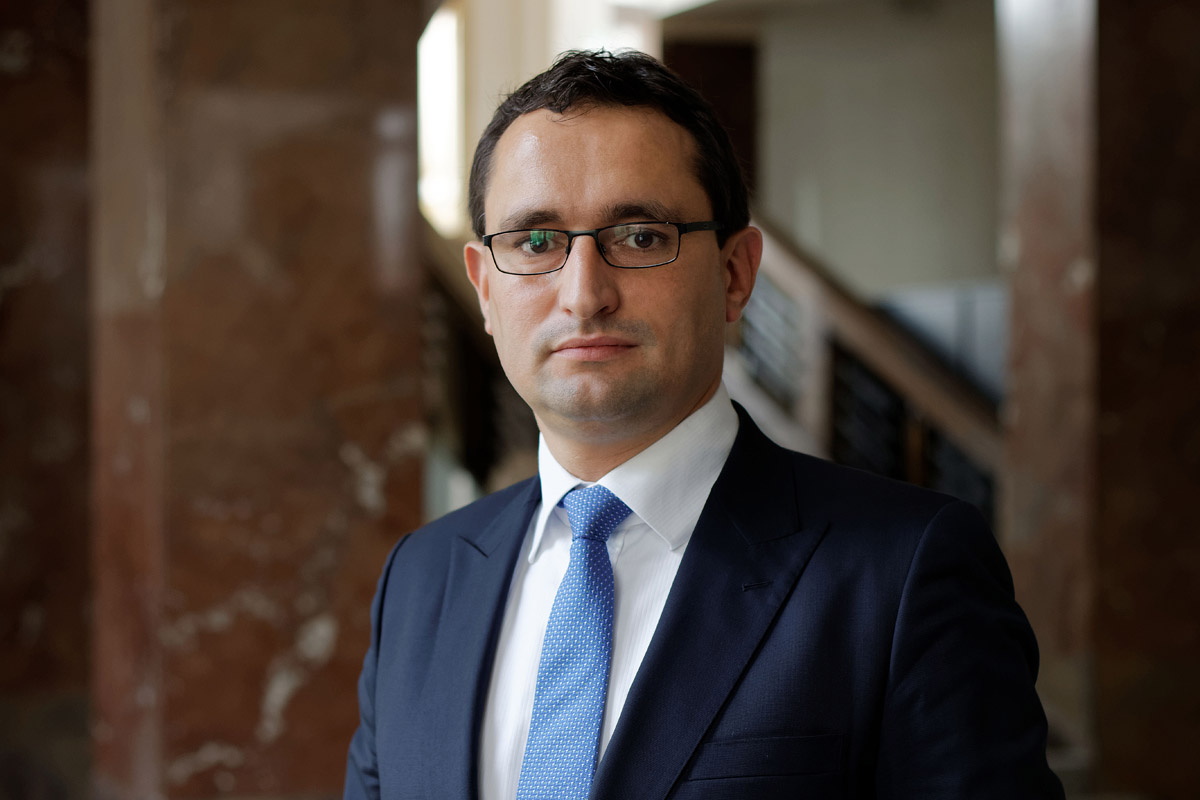Tomáš Vyhnánek
Tomáš Vyhnánek
|
Tomáš Vyhnánek was born in České Budějovice and graduated at the IES in 2005. Since July 2015, Tomáš has been the Deputy Minister of Finance - section Financial Management and Audit. Previously, he was the Director of Central Harmonization Unit. Tomáš is an expert in Analysis, Controlling and Audit of Public Finances. He has held various managerial positions at Deloitte Advisory and CSOB with focus on public administration. He also worked as the Director of Analytical Departments of the Ministry of Health. Tomáš started his career during his studies at the IES. He founded with other students the e-Merit company, which specializes in the analysis and case studies of leading transformation projects. The main project of this student commercial think-tank was the study The Rise and Fall of IPB (2002). During undergraduate studies, Tomáš also worked in the Office of the President of the Senate. After successful Bachelor's degrees in Economics at the IES and Political Science and International Relations at the IPS FSV UK, Tomáš chose the field of Economic Policy for his Master's program. He studied Czech studies and history on the Philosophical Faculty of Charles University, but he did not finish these studies. Tomáš devotes his leisure mainly to organizational and educational activities within the Embellishment Society for Terčino Valley, New Castle and surroundings, of which he is Vice-Chairman. |
Which teacher at the IES influenced you the most?
My future economic journey was mainly influenced by Karel Pulpán and his History of Czech and World Economy. In terms of the university fundamentals it was Miroslav Zelený and his
Mathematics I.
You have studied the Political Studies and International Relations at Charles University as well. Could you compare these two fields? Did you use the knowledge from the Political Studies while studying Economics?
Definitely yes - I see economics as a social science; it is also part of the Faculty of Social Sciences. Therefore, it was very important for me to study Mathematics together with Philosophy, since a large part of important mathematicians were also philosophers, political philosophers or aesthetics. Thus, the mathematical theory that we learn at IES, did not fall from the sky, but often had a story. The story always fits in concrete economic and political situation. It is no coincidence that many prominent mathematicians are profiled in a time of great change - the decline of Athenian democracy or in times of erosion of feudal state and the advent of the Enlightenment.
You have experienced both, working in the public sector and in the big private company. Where do you see the major difference between the job for the public administration and the private sector?
I find the biggest difference in those myths and prejudices that are linked to private and public sector. For me there is a difference between large and small corporations, but large corporations operate like state. So from my perspective the only difference is that corporate pay taxes and contribute to the state budget, on the other hand the public sector executes the national budget.
You have recently become the Deputy Minister of Finance for the Financial Governance and Audit Department. What is in your scope? Could you describe your ordinary working day?
Simplified, there are two large control departments, which count hundreds of employees: Audit Authority controls the so-called “European money” and Inspection Department controls the so-called “Czech money”. Then I have the responsibility of legislation and methodology in the area of financial control, that is, auditors, accounting, financial control and budget inspection. Finally, we started together with students and graduates from IES (and I stress this!) two interesting projects, namely the Central Procurement and Open Data. Regarding the Open Data I am especially happy that the Ministry of Finance has become one of European’s leaders in open government. This project has been managed by Benedikt Kotmel and Martin Kopeček, both meritorious students from IES. Moreover, for this project they received prize awards. I also believe they will complete their studies soon.
How do you relax?
For ten years I teach every Thursday at IES “Seminář k aktualitám” (Seminar to news), which is rather relaxing educational subject, complementing very demanding subjects of the first and the second year of undergraduate studies. After the seminar, we usually visit together with students Bar Tučňák in Nekázanka, where we continue the debate on selected economic issues. Given the "low intellect deficit," as students of IES say, this is an excellent Thursday's relax for me. At the same time, over the years there was a number of significant alumni that participated at our discussions in Tučňák and with whom I am currently in active professional contacts. Some of them also work at the Ministry of Finance, but also elsewhere in the state, non-profit and corporate sector. Thus it has very positive externalities.








